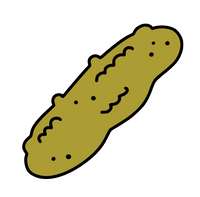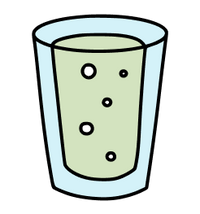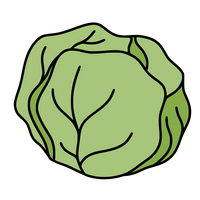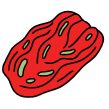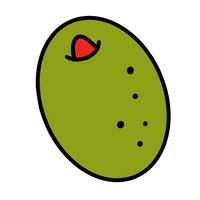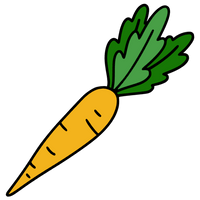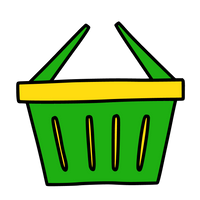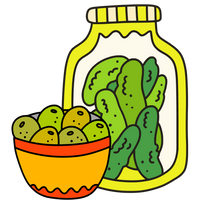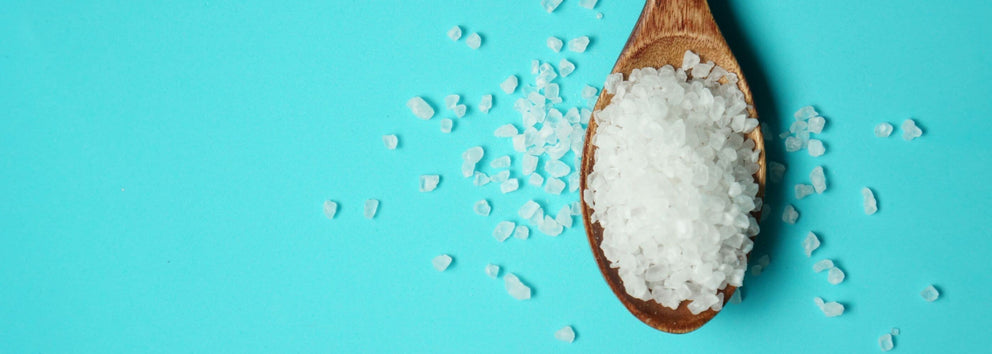
For decades, we've been told all salt is bad. So we've opted for low-sodium snacks, tried a low sodium diet, and steered clear of anything with too much salt.
If you're like us, you love fermented foods and want to keep your gut healthy, but you may be cautious of the sodium content of foods like pickles and kimchi.
At Olive My Pickle, we're here to bust the myth that all salt is bad salt and help you make informed decisions on the food you eat. Instead of trying to track down low sodium fermented foods (spoiler alert: they don't exist) let's take a look at what sodium actually is, why you need it, and why some research has told us to steer clear of it.
We'll explore how salt and sodium are healthy and vital minerals for your body to function and why "eat less salt" isn't necessarily the answer.

The Basics
What is sodium?
Sodium is a mineral found in many foods.
Like calcium, magnesium, phosphate, and potassium, sodium is an electrolyte, meaning that it creates an electrically charged ion when dissolved in fluids like blood. Our bodies need electrolytes to facilitate nerve impulses and regulate body functions such as heart rate, digestion, respiration, brain activity, and blood pressure.
It seems pretty important, right?
Sodium plays a vital role in the body and is necessary for many different functions.
What Sodium Does
Among other things, sodium helps to:
-
Maintain normal blood pressure
-
Conducts nerve impulses in your brain and nervous system
-
Contracts and relaxes muscles
-
Maintain the proper balance of water and minerals
-
Transport nutrients through your gut
Sodium isn't optional.
It's vital to your overall health and wellbeing and the proper functioning of your body.

Is salt the same as sodium?
No. Salt contains sodium. Table salts as we know it is a combination of the two elements, sodium and chloride. Many healthcare professionals use the words salt and sodium interchangeably. That's why when you see low sodium foods, you generally think, 'less salt.'
As we said, our products at Olive My Pickle and salt water brine based and therefore do contain sodium. And to be clear, they are not low sodium foods.
Sources of Sodium
Not all salt is created equal. In fact, there are some pretty big distinctions.

Table salt (sodium chloride)
This is the most commonly consumed type of salt in our diets. We use it to season our food, enhance the flavor, and lengthen the shelf life of many packaged foods.
Most table salt is highly processed. The product of a chemical and high-temperature processing that removes macro and trace minerals, table salt also contains anti-caking agents such as aluminum compounds to keep it dry.
Processing removes the natural iodine, so potassium iodine (ie 'iodized salt) is added back in at potentially toxically high levels. This can destabilize the iodide compounds, turning the salt a purplish color: a bleaching agent is then introduced to restore its pure white color. (Nourishing Traditions, Fallon 1999).
High mineral sea salt (sodium chloride + macro minerals + trace minerals)
High quality sea salt by contrast is minimally processed, far less so than table salt and it contains trace minerals that add color and flavor.
High mineral sea salt contains only about ~80% sodium chloride; the remaining percentage is comprised of macro minerals, particularly sodium, potassium and magnesium. Trace minerals such as iron, manganese, copper, iodine, zinc, cobalt and selenium are also present in high mineral sea salt.
The macro minerals sodium, potassium and magnesium are electrically charged and known as electrolytes. They have added benefits of keeping you hydrated, rejuvenating skin, regulating blood pressure, balancing water levels in the body, reducing fluid retention, and improving digestion.
High mineral sea salt is the optimal salt to use, and it's perfect for making fermented vegetables.
It's the kind of salt we use at Olive My Pickle.
Sodium found in processed foods
Most of the sodium that Americans consume comes from processed foods.
Sodium is added to many processed foods for any of the following reasons:
- for a salty flavor
- to enhance the sweetness in sugary items
- to improve overall taste
- to increase the shelf life
- to help prevent the growth of bacteria
- to help products retain moisture
- to stabilize texture
Types of sodium used as preserving agents in processed foods include sodium bicarbonate, monosodium glutamate, sodium benzoate, sodium saccharin and sodium nitrate. These are highly concentrated sodiums that create shelf stability over long periods of time while attempting to maintain flavor; they are powerful chemicals which is why they drive up the sodium levels of processed foods.
What happens when you don't get enough salt?
Do you ever wonder why athletes drink electrolyte drinks? Well, remember how sodium is an electrolyte?
You lose sodium every day through sweat and urination. You can also drive your sodium levels down by drinking too much water and diluting the concentration of sodium in your body.
Without sodium, you can begin to experience muscle cramps, nausea, vomiting, and dizziness. In extreme cases, sodium deficiency can cause shock, coma, and death. Learn more about the important role of electrolytes in our article Why is Hydration Important for Your Gut Health.
My sodium story…
“I went to my functional doctor and told him that I was waking up throughout the night with intense thirst. I’d wake up every hour on the hour with a parched mouth. No amount of increased water throughout the day seemed to help. My doctor told me that it was likely mineral deficiency.
‘Water runs down rocks from the top of mountains, and that’s what gives it its minerals. When your body wakes you up to reach for your water, it's probably reaching for minerals,’ he told me.
He recommended that I remineralize my water with high mineral sodium drops and told me to start practicing what I preach by drinking more pickle juice, LOL. I started doing both and I haven’t woke up thirsty in the night since.”
—Charlotte, Co Founder Olive My Pickle
Now that you have a better understanding of what sodium actually is and why we need it, you may be asking yourself...
why, for decades, we've been told that salt is the enemy and we need to avoid it at all costs to stay healthy.
Well, let's break it down…

The War on Sodium
Perhaps you earned in health class years ago, or maybe from a healthcare provider, or a TV commercial, that sodium is bad, particularly for heart health.
Let's dive a little deeper and see what the science actually has to say.
This 'low-sodium' phenomenon comes largely from observational data that reports higher sodium intake is linked to higher blood pressure (hypertension) in certain populations.
High blood pressure can lead to heart disease - that part is a fact.
Research scientist Lewis Dahl discovered that rats with certain genes would develop high blood pressure with high sodium intakes.
He also found a link between sodium and hypertension in humans.
But, again, this data was observational. He couldn't quite understand why many individuals on high salt/sodium diets did not have high blood pressure.
In fact, there are several studies linking higher salt/sodium intake to less hypertension and a lower risk of death from stroke or heart attack.
It was Dahl's findings that helped to justify the 1980 US Dietary Guidelines that encouraged the public to "avoid too much salt/sodium."
Today, the USDA recommends capping sodium at 2.3 grams per day to reduce the risk of hypertension and heart disease.
The American Heart Association (AHA) is even more strict on salt, encouraging you to stay under 1.5 grams per day.
For reference, the average American consumes about 3.4 grams of sodium per day.
This information probably aligns with what you've heard before, but there's a flip side…

What the Science Says
Many studies show that salt has the ability to increase blood pressure. This isn't all that surprising - high volumes of sodium can increase your blood volume, which would increase your blood pressure.
On the other hand, one international study published in 1988 looked at sodium and blood pressure in over 10,000 people across 52 regions of the world.
Researchers observed no link between sodium intake and high blood pressure.
In 2017, researchers analyzed 2,632 people with normal blood pressure consuming either low (under 2.5 grams) or high (over 2.5 grams) sodium intakes.
In this study, the HIGH sodium group has LOWER blood pressure than those on a low sodium diet.

So, more sodium doesn't always mean higher blood pressure?
Let's look at research from the American Medical Association. They followed 4,729 heart disease patients over several years, measuring their sodium excretion to identify sodium intake.
By the end of the study, 2,057 of the patients had died from a stroke, heart attack, and other cardiac-related deaths.
They charted the lowest risk of death with about 5 grams of sodium per day, with lower sodium consumption with a higher risk of death.
More recent research reviewed clinical trials on a low sodium diet for treating heart failure. They found no evidence to support low-sodium diets.
This data shows that low-sodium diets don't improve heart health.
And, low sodium diets could be doing more harm than good.
While more research is needed to nail down the truth about sodium, the recommended amount of sodium intake is still pretty low, considering this mineral is essential for a healthy body.

So, does this mean we can load up on salty snacks and OVER CONSUME sodium?
Probably not the best idea. Everything in moderation is a principal that applies to most things.
Avoiding processed foods is always a good idea, regardless of their sodium content. But avoiding things like fermented foods because they contain sodium, when they offer a variety of other health benefits is throwing the baby out with the bathwater.

There's no such thing as low sodium pickles
So, are pickles high in sodium? Simply put, low sodium fermented foods just don't exist. That's because a minimum salinity level is required for a viable fermentation process to occur and is necessary for creating the lactic acid bacteria found in probiotic rich foods.
Consuming fermented foods has many benefits, that far outweigh the risk of sodium. A healthier gut biome? Yes, please!
Sodium found in pickles and fermented foods
At Olive My Pickle, we specialize in a fermentation process called lactic acid fermentation or simple fermentation.
This process uses a salt water brine to preserve vegetables. It's much different than traditional pickling, which uses vinegar, sugar, and/or heat canning methods to "cook" the pickles.
A fermented pickle is not cooked, instead is raw and unpasteurized, alive, and teeming with good bacteria.
The type of pickles you may get at the grocery store, or maybe even health food stores, or eat at a deli along with your sandwich can be much high in sodium, often sugar-laden, and contain additives.
Are fermented foods high in sodium or are they low sodium foods? No, but they are made with pure, high mineral sea salt that is mineral rich and beneficial to your body.

People also ask...
Why should I eat fermented foods when I could just use high mineral salt daily?
Fermented foods are nutrient dense whole foods that contain electrolytes, live enzymes and probiotics that confer health benefits to the gut. There are so many reasons to eat fermented foods beyond their mineral richness. Plus, they're delicious!

Olive My Pickle
At Olive My Pickle, we make caring for your gut simple. We know real fermented foods can be hard to find, which is why we deliver tasty, fermented foods right to your door.
We offer many fermented foods such as pickles, kraut, kimchi, olives, fermented vegetables, and brine drinks to help decrease inflammation and improve overall microbial diversity.
Visit our shop to explore our unique fermented foods and start optimizing your gut health today!
DISCLAIMER: THIS WEBSITE DOES NOT PROVIDE MEDICAL ADVICE
The content on this website is for informational or educational purposes only and does not substitute professional medical advice or consultations with healthcare professionals. Always seek the advice of your physician or other qualified healthcare provider(s) with any questions you have regarding a medical condition or treatment and before undertaking a new health care regimen.

